What is On-Page SEO and why is it important?
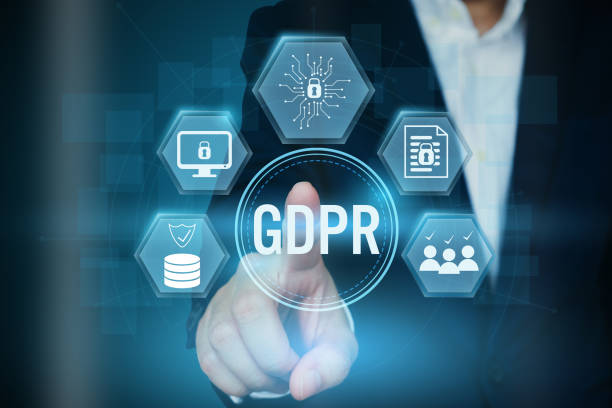
What is On-Page SEO and why is it important?
On-Page SEO is a set of techniques and actions you perform within your website to improve its ranking in search engine results (SERP).
These actions include content optimization, using appropriate keywords, improving site structure, and internal linking.
The importance of On-Page SEO stems from the fact that it helps search engines better understand your site’s content and display it to relevant users.
In other words, On-Page SEO helps you get seen and attract more organic traffic.
Without proper On-Page SEO, even the best content might get lost among a multitude of web pages.
More information about SEO.
Tired of losing customers due to poor e-commerce website design? With Rasaweb, solve this problem forever!
✅ Increase sales and visitor-to-customer conversion rates
✅ Smooth and engaging user experience for your customers⚡ Get free consultation
Keyword Research: The Key to SEO Success
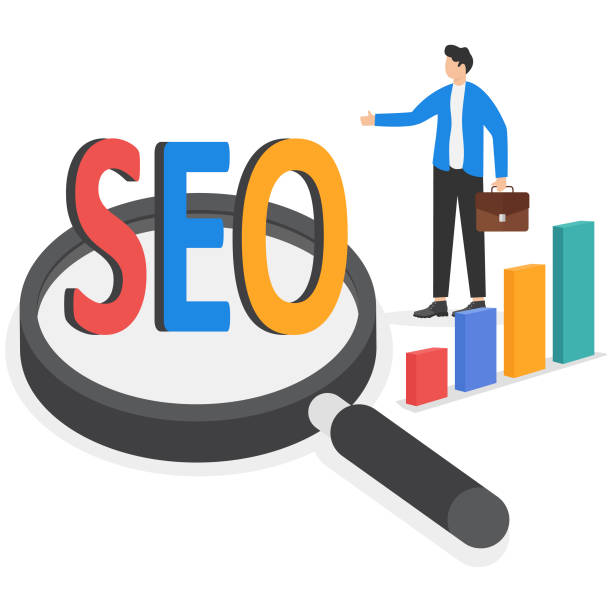
Keyword Research: The Key to SEO Success
Keyword research is the process of identifying words and phrases that users employ to search for information on search engines.
This process helps you understand what your audience is looking for and how to optimize your content to meet their needs.
To perform keyword research, you can use various tools such as Google Keyword Planner, Ahrefs, and SEMrush.
These tools provide you with information about search volume, competition, and related keywords.
Choosing the right keywords is the first step towards SEO success, as these keywords determine for which searches your site will rank.
Ahrefs Keyword Generator tool. Remember that excessive use of keywords in the text (keyword stuffing) can harm your site’s ranking.
Optimizing Page Title (Title Tag) and Meta Description

Optimizing Page Title (Title Tag) and Meta Description
The page title (Title Tag) and meta description (Meta Description) are two important elements in On-Page SEO that are displayed in search results.
The page title is the main title of the page shown in the browser tab and search results.
The meta description is a summary of the page’s content displayed below the page title in search results.
Optimizing these two elements is crucial because they are the first thing users see in search results and can influence their decision to click on your link.
To optimize the page title, you should use the page’s main keyword and write it in an engaging and concise manner.
To optimize the meta description, you should provide an accurate and compelling summary of the page’s content and encourage users to click on the link.
On-Page SEO places great importance on these aspects.
| Element | Description | Best Practice |
|---|---|---|
| Page Title (Title Tag) | The main title of the page displayed in search results. | Using the main keyword, being engaging and concise (less than 60 characters). |
| Meta Description | A summary of the page content displayed below the title in search results. | An accurate and engaging summary, encouraging users to click (less than 160 characters). |
The Importance of Optimized and Readable URLs

The Importance of Optimized and Readable URLs
URLs (Uniform Resource Locators) are web page addresses.
Optimized and readable URLs are important for both users and search engines.
Readable URLs help users understand what the page is about and help search engines better comprehend the page’s content.
To create optimized URLs, you should use relevant keywords, use lowercase letters, and avoid special characters.
Also, URLs should be short and descriptive.
On-Page SEO also includes URL optimization.
Are you tired of your e-commerce website not generating as much revenue as its potential? Rasaweb, specializing in professional e-commerce website design, solves this problem forever!
✅ Increased sales rates and revenue
✅ High loading speed and unparalleled user experience
⚡ Get a free e-commerce website design consultation
Image Optimization for SEO
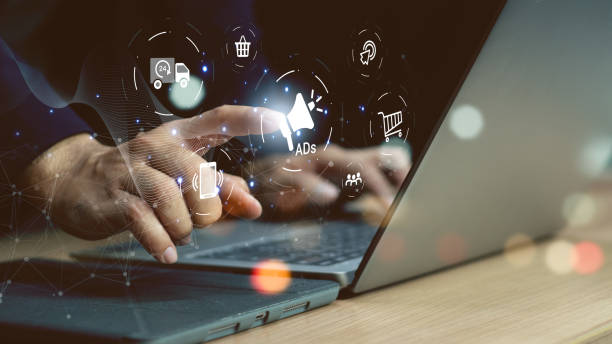
Image Optimization for SEO
Images play an important role in website appeal and user experience, but if not optimized correctly, they can harm your site’s ranking.
To optimize images for SEO, you should use appropriate file names (including relevant keywords), use alt tags (alternative text) (provide a precise description of the image), and reduce the file size (to decrease page load time).
Alt tags help search engines understand image content and display it in search results.
On-Page SEO emphasizes image optimization.
Strategic Internal Linking
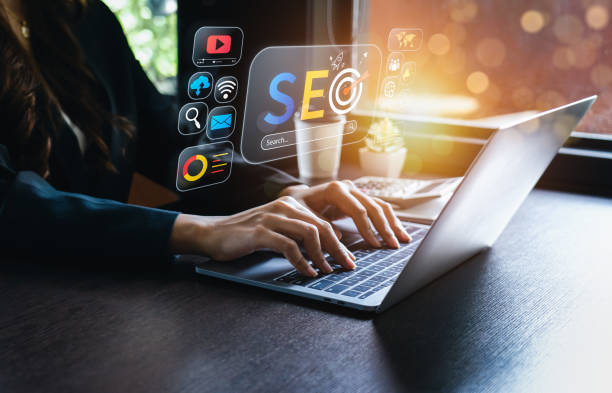
Strategic Internal Linking
Internal linking is the process of creating links between different pages of your website.
Internal linking helps search engines better understand your site’s structure and helps users navigate your site easily.
Strategic internal linking can help improve the ranking of important pages on your site.
To create strategic internal linking, you should use relevant anchor text (link text) and link to important and related pages on your site.
Strong On-Page SEO requires proper internal linking.
Website Speed and User Experience (UX): Critical Importance
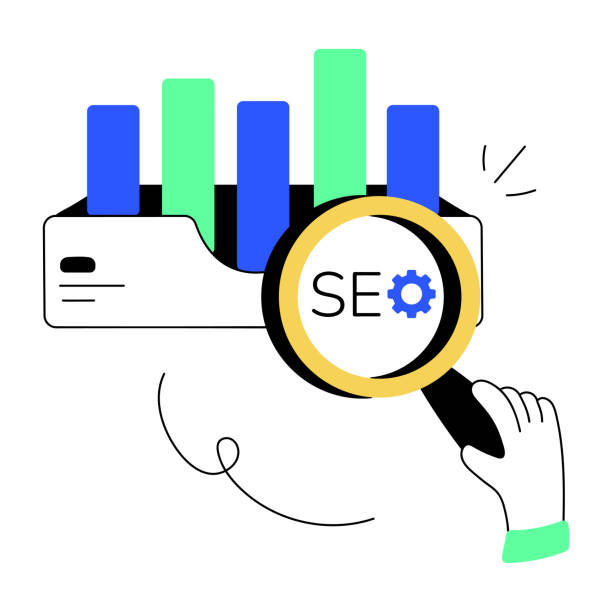
Website Speed and User Experience (UX): Critical Importance
Website speed and user experience (UX) are two important factors in website ranking on search engines.
Sites that load quickly and provide a good user experience achieve better rankings in search results.
To improve website speed, you can use image compression, CDN (Content Delivery Network), and code optimization.
To improve user experience, you should design your site to be user-friendly, easy to navigate, and compatible with various devices (mobile, tablet, desktop).
On-Page SEO also includes attention to website speed and UX.
| Factor | Description | Improvement Solutions |
|---|---|---|
| Website Speed | The time it takes for site pages to load. | Image compression, using CDN, code optimization. |
| User Experience (UX) | User comfort and satisfaction when using the site. | User-friendly design, easy navigation, compatibility with various devices. |
Website Content Optimization with an SEO Approach
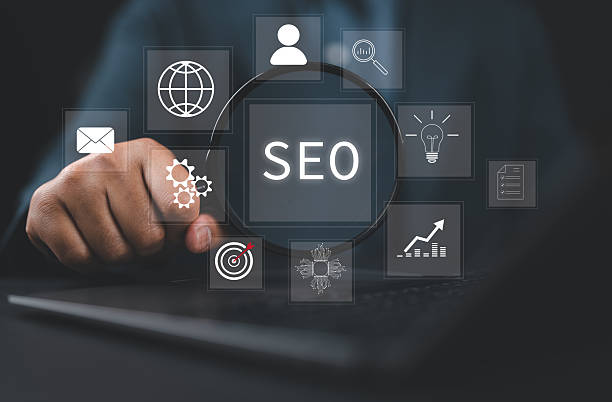
Website Content Optimization with an SEO Approach
Content is king! High-quality and relevant content is the most important factor in SEO.
To optimize your website content with an SEO approach, you should optimize your content for target keywords, use engaging titles and subtitles, write your content in a readable and understandable way, and answer users’ questions.
Furthermore, you should regularly update your content and produce new content.
Successful On-Page SEO requires high-quality content.
Content Optimization Guide.
Is your e-commerce site ready to attract maximum customers and increase sales? Rasaweb transforms your online business with modern and efficient e-commerce website designs.
✅ Increased speed and improved SEO
✅ Excellent user experience on mobile and desktop⚡ Get a free e-commerce website design consultation from Rasaweb!
Using Schema Markup

Using Schema Markup
Schema Markup is a code that helps search engines better understand your site’s content and display more information about it in search results.
By using Schema Markup, you can display information such as ratings, prices, opening hours, etc., in search results.
This can help increase your click-through rate (CTR) and site traffic.
Advanced On-Page SEO includes using schema.
Monitoring and Analyzing On-Page SEO Results

Monitoring and Analyzing On-Page SEO Results
After implementing On-Page SEO measures, it is important to regularly monitor and analyze your results.
For this purpose, you can use tools like Google Analytics and Google Search Console.
With these tools, you can track your site’s traffic, keyword rankings, and other important metrics.
By analyzing this information, you can understand which of your On-Page SEO actions have been effective and which ones need improvement.
On-Page SEO is an ongoing process and requires monitoring and optimization.On-Page SEO helps you provide quality content.On-Page SEO is our specialty.Ask us for the best On-Page SEO.With On-Page SEO, you can reach higher rankings.On-Page SEO only requires expertise.On-Page SEO is the best solution for attracting customers.On-Page SEO helps you a lot.Strive to be the best in On-Page SEO.Don’t underestimate On-Page SEO.On-Page SEO is our art.
Frequently Asked Questions
| No. | Question | Answer |
|---|---|---|
| 1 | What is On-Page SEO? | On-Page SEO refers to a set of actions performed within a website (on its pages) to improve its ranking in search engine results. This includes optimizing content, site structure, and HTML codes. |
| 2 | Why is On-Page SEO important? | On-Page SEO helps search engines better understand page content and determine whether that page is relevant and valuable for user searches. This better understanding leads to higher rankings. |
| 3 | What is the first and most important step in On-Page SEO? | Keyword Research is the most important initial step. By finding suitable keywords, targeted content relevant to user needs can be produced. |
| 4 | What is the role of the Title Tag in On-Page SEO? | The title tag is one of the most important ranking factors and should include the main keyword. This tag is displayed as the page title in search results and influences the click-through rate (CTR). |
| 5 | What is the importance of Meta Description? | The meta description does not directly affect ranking, but by providing an appealing summary of the page’s content in search results, it can encourage users to click, thereby increasing the click-through rate (CTR). |
| 6 | Why is the use of headings (H1, H2, etc.) important in content? | Headings help structure content and improve readability for users and search engine crawlers. Using keywords in headings also helps search engines better understand the topic. |
| 7 | What does Image Optimization in On-Page SEO include? | It includes compressing images to reduce size, using descriptive and relevant file names, and filling the Alt tag (alternative text) with relevant keywords to help search engines understand the image content. |
| 8 | What is meant by Internal Linking in On-Page SEO? | Internal linking refers to creating links between different pages of a website. This helps distribute page authority (Link Equity), improve user experience, and assist search engine crawlers in discovering new pages. |
| 9 | Why is Page Speed important for On-Page SEO? | Page load speed is a direct ranking factor and significantly impacts user experience. Slow pages can lead to an increased bounce rate and decreased user engagement. |
| 10 | What role does quality content play in On-Page SEO? | Quality, comprehensive, unique, and valuable content for the user, is the core of On-Page SEO. This content not only attracts and retains users but also sends positive signals to search engines and contributes to better rankings. |

